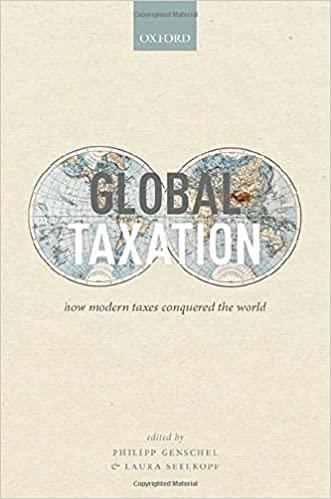Alice, a married taxpayer, will form Morning Corporation in the current year. Alice plans to acquire all
Question:
Alice, a married taxpayer, will form Morning Corporation in the current year. Alice plans to acquire all of Morning's common stock for a $1 mill ion contribution to the corporation. Morning will obtain additional capital by borrowing $200,000 from a local bank. Morning will conduct a variety of service activities with little need to reta in its capital in the business. Alice expects start-up losses of $80,000 during Morning's first year of operation. She expects the corporation to earn pre-tax operating profits of $220,000 (before reduction for Alice's salary) starting next year. Alice plans to withdraw $90,000 of Morning's profits as a reasonable salary. Her other income consists primarily of ordinary income (no dividends or capital gains) from other sources, including her husband's salary, and she expects these amounts to total $115,000 annually. What advice can you provide Alice about the advisability of making an Selection in the initial tax year? In the next tax year? In answering these questions, compare the following alternatives: (1) S corporation in both the current year and the next year, (2) S corporation in the current year and C corporation in the next year (i.e., by revoking the Selection next year), (3) C corporation in both the current year and the next year, and (4) C corporation in the current year and S corporation in the next year. When analyzing these alternatives, consider the total income taxes associated with each alternative, specifically, at the corporate and shareholder levels and across both years. Ignore payroll taxes, however. Also, assume the following facts: (1) for both years, the standard deduction is $24,000; (2) 2018 tax rate schedules remain the same for both years; (3) Alice claims the qualified business income (QBI) deduction where appropriate; and (4) a 7% discount rate applies for present value calculations. Although this problem asks for only a two-year analysis, discuss some shortcomings of such a short time frame.
Common StockCommon stock is an equity component that represents the worth of stock owned by the shareholders of the company. The common stock represents the par value of the shares outstanding at a balance sheet date. Public companies can trade their stocks on... Corporation
A Corporation is a legal form of business that is separate from its owner. In other words, a corporation is a business or organization formed by a group of people, and its right and liabilities separate from those of the individuals involved. It may... Discount Rate
Depending upon the context, the discount rate has two different definitions and usages. First, the discount rate refers to the interest rate charged to the commercial banks and other financial institutions for the loans they take from the Federal...
Step by Step Answer:

Global Taxation How Modern Taxes Conquered The World
ISBN: 9780192897572
1st Edition
Authors: Philipp Genschel, Laura Seelkopf





